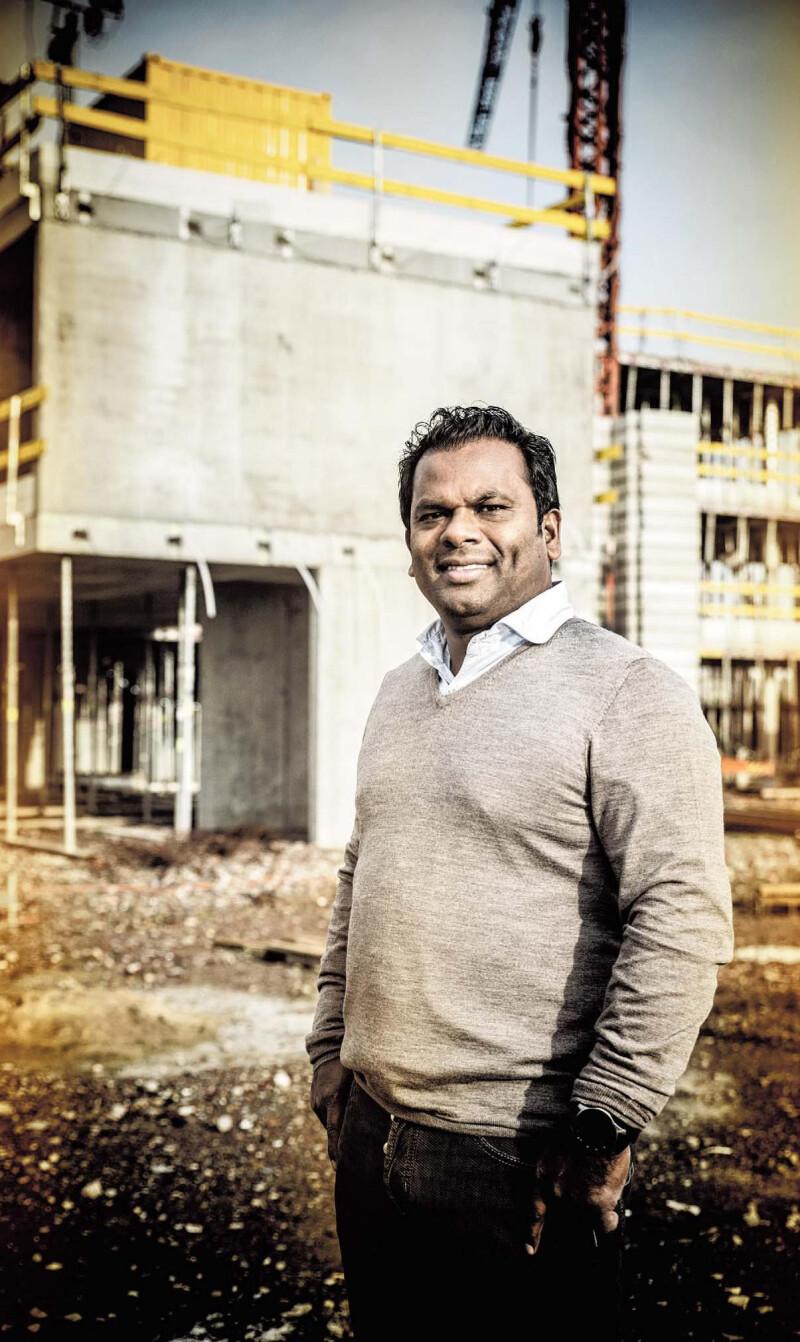interview newspaper of west flanders
2019/12/19

Employer for about 180 people, a beautiful family and soon a new home for his outsourcing company Maxicon. Things are more than going well for Emmanuel Bekaert. "I have worked very hard for the past 25 years," he muses. "But I will never forget where I came from. Without my adoptive mother Ann Bekaert, I would not be able to experience all this. I will never forget that."
How did you end up in Belgium?
"I spent the first years of my life as a foundling in an orphanage in southern India, in a town near Mumbai. I was already five years old when I first set foot in my new homeland. Thanks to the adoption agency The Joy Sowers and especially my adoptive mum. I realise all too well that my life could have been completely different."
Do you still have memories of your homeland?
"Those are fading more and more. I do remember falling out of a tree in the garden of the orphanage. I still have a scar under my hair from that (smiles), but it is getting harder and harder to recall images sharply. When I arrived in Roeselare, I didn't speak a single letter of Dutch. I remember that the culture shock was very big. I was dropped straight into the first year of school, but spent those first months more in hospital than in class. Adapting to my new and western environment was not easy. A different climate, a different diet... I was used to eating rice and was suddenly served chips. But I was very well taken care of everywhere.""In the playground, I initially refused to wear shoes. I was used to walking barefoot as a child, so I threw off my shoes even in Belgium."
Did you never feel the urge to look for your roots?
"That was never actually the case. As a foundling, for example, I could never find out who my biological parents were. Obviously they couldn't take care of me, but they indirectly gave me a beautiful life. Even during my adolescent years I did not struggle with an identity crisis, I was content with my life in Belgium. And I still am. But sometimes I think what my life could have been like, had I stayed in India. Then I would probably have belonged to the lowest caste and climbing up in life would never have happened. Actually, you can best compare my life's journey to the film Slumdog Millionaire. Thanks to my adoptive mum, I also hit the proverbial jackpot. I did promise my fiancé that once we are married, we will go on honeymoon to the region where I was born. Then I want to see everything again with my own eyes. Hopefully we can make that trip in 2021."
Doyou still feel Indian?
"I feel like a purebred Belgian. And especially a West Fleming. I am really proud of that. My mother tongue is West Flemish. I stopped speaking Indian a long time ago. At the time, there were five adopted children scattered all over Flanders. I still kiss both my hands that I ended up here. That sometimes makes for funny scenes. When making business contacts over the phone, people picture a full-blooded West Fleming, but when they meet me in real life, at first they can't believe that I am actually Emmanuel Bekaert. But I have never suffered from overt racism. On the contrary, even. In that respect, the stereotypical image of the closeted West Fleming is totally wrong."
West Flemish people are well known for being driven entrepreneurs. So are you. Where does that drive come from?
"Entrepreneurship is simply in my blood. When I was fifteen I already had a weekend job at the Quick in Roeselare. Frying hamburgers to earn some extra money. Initially I worked as a technician at Delta Light and Westvlees, but I wanted to stand on my own two feet. And I literally built everything from scratch. My adoptive mum supported me in everything I did, but a financial push was not possible. I've been an entrepreneur for 15 years now and have anything but regrets about that choice. Taking risks, going down on your face once, but keeping going for it.... That keeps me on my toes."
Are you proud of the path you have taken?
"More than proud. No one can accuse me of being a fils à papa. I never looked at an hour more or less, because I had only one goal in mind: to succeed as an entrepreneur. And I succeeded. But like all business leaders, I know all too well where my strengths and weaknesses lie. You are only as good as the team you can surround yourself with. On that front, I have been blessed at Maxicon."
Now you are a business manager and deal with the bigger picture. Don't you miss the technical work?
"Occasionally I do. That remains the core of the business, after all. When I see that one of our teams is short of manpower, I put on my work outfit and jump in with pleasure. I really enjoy that. And for my people it's brilliant that the boss doesn't feel too good to do some dirty work."
The general public got to know you in 2017 as one of the faces of the summer bar Pulobar. How do you look back on that period?
"We did pioneering work during that first year. Until then, summer bars were known only on the coast; we brought the concept to the interior. Everyone declared us crazy, but in the end the masses found their way to Ardooie very easily. Frederik, (Stragier, co-organiser, ed.) and I watched that with great eyes ourselves. To give you an idea: we told our rosé wine supplier that we hoped to sell six hundred bottles over the whole summer. It turned out to be 7,000."
However beautiful the first edition in Ardooie was, the sequel in Izegem ended with a very bitter touch. 29-year-old Sarah Palaisy died after a methanol overdose in her drink in Pulobar proved fatal to her
"That second year is one to forget very quickly. Someone losing their life in our business, completely beyond our control, that does something to a person. We are still standing our ground. We have nothing to do with that whole affair and fortunately Sarah's family also realises this by now. We contacted her mum and uncle at the time and they know we only had good intentions."
Do you still often think about that whole story?
"Still do. And especially about Sarah herself. However, the fact that we were able to reopen after a few weeks proves that we had nothing to do with this. I find it especially punishing that 1.5 years after Sarah's death, there is still no clarity on who is responsible for this. As far as I am concerned, then, the hospitality world is a closed chapter. We had some beautiful moments through it, but the ending was very sour."
Then Maxicon is doing much better.
(gloats) "You could say that. Our shop is running tremendously and I have tied my dream job here. I will continue to do this until my retirement. With Bekaert Technics (one of Emmanuel's previous companies, ed.), I employed about 90 people at my peak. Now I employ 176 people and we will move to our new home in June 2020. The structural work is done, in January everything will be made wind and watertight.... Every time I pass by our yard via the R32, I stop for a moment. I am ticketed to take a look there. Maxicon is my baby, lol."
How sad are you that your adoptive mum can no longer witness this?
"I know she is watching. She was already proud that I was doing well as an independent, but what we are doing now with Maxicon would have been the icing on the cake. I can only say that Mum Ann has an important part in this success. Because without her, I just wouldn't be here."
Verhaest, P. (2019). Krant van West-Vlaanderen. Accessed from https://kw.be/nieuws/samenlevi...

